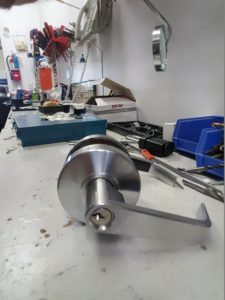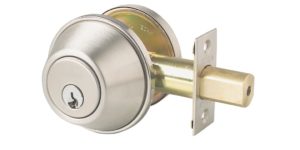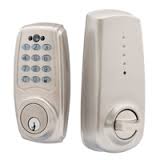Access Control 1 – Homes
We aren’t quite at our home automation portion of the Helix roll out yet, but we’re getting there. Resolution is constantly adding new products to their home device lines. The engineers over there must be cyborgs or something.
Would explain a few things….
It’s time now to talk about access control, though. This is a big topic, so we’re gonna have to do it in pieces.
See, access control is not exclusively about key fobs, cards, readers and audit trail. We’ve kind of been conditioned to think of controlled access as this exclusive, super expensive method of securing a business from unauthorised access.
So let’s clear this up a little;
- Access Control is not just for businesses
- Access Control is not necessarily Card Access
Think of access control as an added value for the property you own. It’s not meant for just business, or high tech government facilities. Access Control is meant to provide that level of… well… controlled access to any door you feel you should be controlling access to.
Access Control is not always bio-metrics, swipe cards, key fobs or voice activation. Sometimes it’s as simple as a lock with a keypad on it. Seems like as good a place to start as any.
Home Access Control – The Basics
This is a lock;
Probably similar to something you have on your door right now, and if not you likely have this;
These are the two most basic and common locks found on residential doors. Generally they are designed for 2 3/4 or 2 3/8 back sets, come in a variety of colours shapes and sizes, and are something you use to keep your doors closed when you don’t want anyone coming in. You use a key to lock it, a key to unlock it, and you make sure everyone who needs a key has one.
It’s the last line that can cause… concern. It’s very easy to forget who you have given a key to, it’s easier for people to lose the keys you’ve given them meaning you now need to get more cut, and it’s even easier still to no longer want someone to have a key which they will not return.
This is where controlled access comes into play.
This is also a lock;
It’s an electronic deadbolt. And it’s controlled not just by a key, but optionally by a keypad.
There are a couple of things about the brands we carry here that you should know;
- Most electronic locks can handle up to 10 user codes
- Not all user codes are permanent
- Code programming is a simple end-user operation for both addition and subtraction
- Some models have fobs available for remote unlocking
- If you are considering home automation, Z-Wave electronic locks are your best solution
- We’ll hit more on this as we get deeper into the Helix/RE920 security solutions
I could spend about 3000 words on the topic of electronic locks for homes. There is an endless list of useful applications, and the cost is affordable enough that you don’t have to worry about breaking your bank to make it worthwhile.
Give us a call, visit us on Facebook, or send us an email at service@hbsecurity.com . If you are in the market, know what you want, or just want to know more… we can help.
Next: Small Business Access Control




No comments yet.